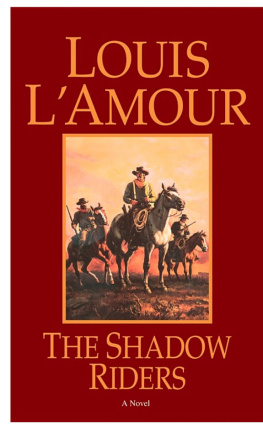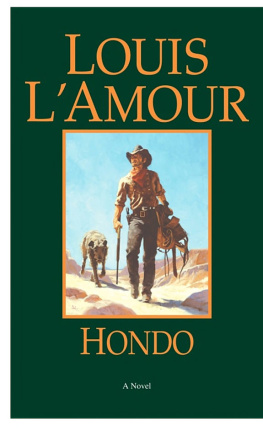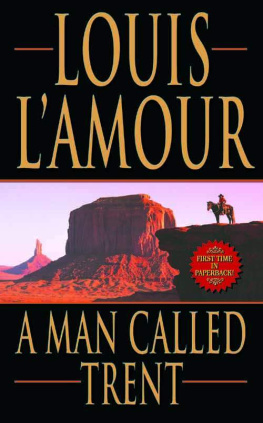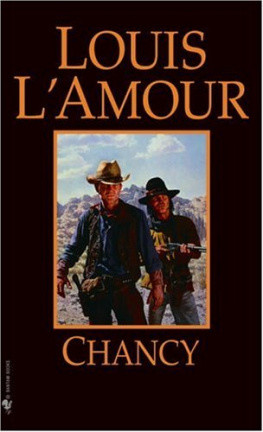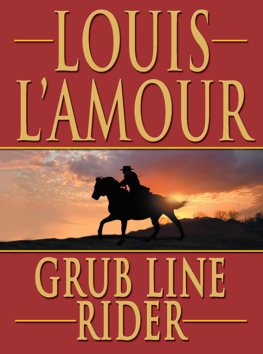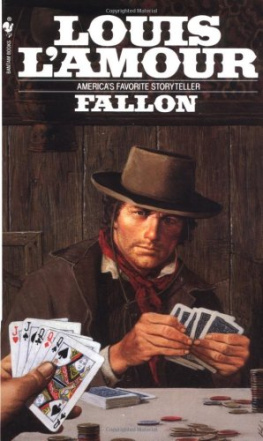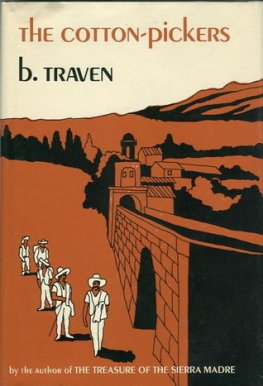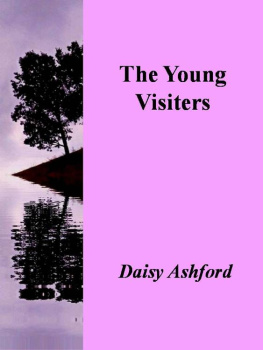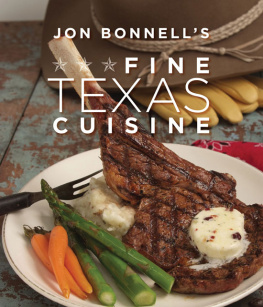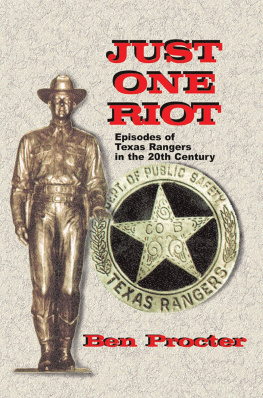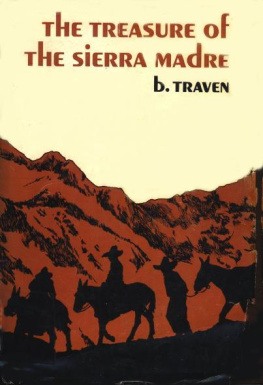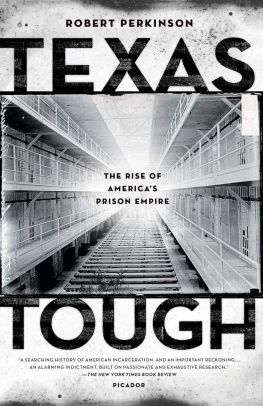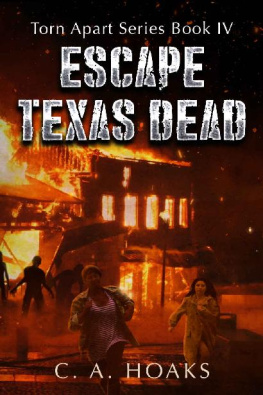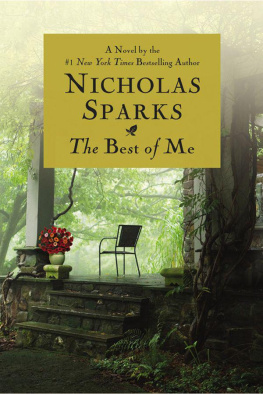the Shadow Riders (1982)
L'amour, Louis
The Shadow Riders
Louis L'amour
*
Chapter One.
Hunching his shoulders against the cold, pelting rain, Major Mac Traven slipped a hand under his caped coat to assure himself his spare pistol remained in position. A sudden gust of wind rattled rain upon his campaign hat and spattered his face and hands.
Desperately tired and carrying the gnawing hunger from three missed meals, he glanced back along the road at the scattered travellers.
They were an army no longer; like himself they were just tired men returning to homes left long ago. Once they had marched with the proud steps of men with a mission to be accomplished; now they plodded wearily, heads down against the rain, thinking only of home.
Under the bare black trees water gathered in pools like mirrors of steel as the rain fell from the sullen sky. Somewhere ahead was a town, if such it could be called, a dismal place by all accounts, but it held the promise of a hot meal and grain for his horse. More he could not expect, yet there might be a letter.
"Watch yourself," he had been warned. "All but the Swede are a pack of thieves. They will steal anything they can put their hands on and murder you if need be."
It was late afternoon when Mac rode into the town's one street, a muddy, rutted alleyway between two rows of nondescript shacks, sodden with rain. Dimly, at the end of the street and through a veil of rain, he glimpsed the river and a steamboat landing.
Here and there a horse was tied to hitching-rails or awning posts. Some of the horses he recognized as those of other soldiers returning from the War.
He turned aside at the log barn that had been described to him and rode around it to the wide open door and the pole corral. He was stepping down from the saddle when a big man with yellow hair appeared in the barn door.
"Olson?"
"Come." The big man motioned him into the barn. "Who told you of me?"
"A steamboat pilot at Helena, on the Mississippi. He said you were the only honest man in town."
The big Swede did not smile. "There is one other," he spoke with only a slight accent. "How long you stay?"
"Overnight."
"Two bits, then. You can sleep in the hay."
"Isn't there somewhere I can find a bed?"
"A bed with bugs, yes. A bed where you will be robbed. It is no good, those beds."
"I was told there might be mail?"
Mac Traven was as tall as the Swede, although not as heavy. He led his horse to a stall and forked some hay into the manger.
Olson indicated a building. "At the store there is a box. Sometimes there is mail."
"A friend knew I'd be coming this way," Mac said. "It's been four years since I heard from my family." He wiped the rain from his face with a handkerchief. "They live in Texas, and I guess to them I chose the wrong side."
Leaving the stable he walked across the muddy street. Going up the steps he paused to stomp the mud from his boots. Inside the store the air was hot and close. Several men sat or stood around a pot-bellied stove, and a man behind the counter in undershirt and suspenders came over to him. "What's fer y'?"
"Is there any mail for Mac Traven?"
The man behind the counter indicated a box. "If so, it'll be there. You take a look."
A man who had come into the store behind him took the pipe from his mouth. "Traven, did you say? You got any kin in these parts?"
"Not that I know of."
"There's a Johnny Reb down in the shack by the boat landing. Wounded man. They're fixin' to hang him. Kangaroo court."
He had his hand in the mail-box, and now he swiftly withdrew it. He wheeled and ran for the door. Chances are it was somebody else, but -
Going out the door he heard someone say, "There's a man fixin' to git killed!"
He glimpsed the roof of the shack through the trees near the landing and went down the muddy slope on the run, unbuttoning his coat as he went.
The trouble was there, right in front of him, as he entered the room. Two men held the arms of a dark, handsome young man who had been shot and was badly in need of a shave. Another man was putting a noose over his head. The other end of the rope had been thrown over a rafter and was held by three other men. All eyes turned toward him as Traven stepped through the door, gun in hand. "Let him go," he said.
There were six of them in all, rough, dirty, and bearded men born to trouble and bad whiskey. "Who the hell d' you think you are, comin' in here an' tellin' us what to do?"
Another of the men spoke contemptuously. "Sorry, Mister Major, them braids don't count for nothin' no more. The War's over."
"I said to let him go."
"Now, you see here, Major! We got us a Reb, an' he's goin' to git hung. If you don't want to watch, you jus' git goin'. I say hangin's too good for Rebs!"
"You just said the War was over. Mr. Lincoln said the same thing. Take the rope off him."
"Lincoln don't count for much here. We can handle our own Rebs, an' no politician is goin' to tell us how. Nor no Army major, either!"
A stocky, red-haired man interrupted. "Maybe we should hang the two of them. Make us a nice brace of chickens!"
Mac Traven tilted his pistol. "Take the rope off him. Take it off now!"
They hesitated a moment; then carefully, the rope was lifted off. As they let go of their prisoner he started to fall, and Mac stepped forward quickly, catching him around the body with his left arm. As he did so, one of the men threw a rifle to his shoulder, and Traven fired. The bullet caught the man in mid-movement. He stopped, started to speak, then fell head-long. The others backed off, and Mac Traven spoke quietly, almost indifferently. "If you boys are counting, I've got four cartridges left in the gun, and there's five of you here. As you've noticed, I hit what I shoot at. That means one of you might live." He smiled a beautiful smile with even white teeth. "Who wants to be the lucky man?"
"Ain't worth it," the red-head replied. "But what're you doin', a Union officer stickin' up for a Johnny Reb?"
"Like you said, the War's over, and he's not a Johnny Reb any longer. But I've a better reason. He's my brother."
Without taking his eyes from the others he said, "Dal? You've got to walk. We're gettin' out of here."
"Duff ..." Dal Traven muttered. "Duffle."
Mac gestured with the gun barrel. "You! All of you! Back against the wall!"
They moved, some quickly, others more slowly. On a pallet near the far wall he saw a duffle-bag and a haversack. He helped Dal to the door, then walked back for his gear.
"You'll get no more trouble from us," the red-head said, "but that man you killed has friends."
"He bought his ticket," Mac Traven said, "and I've got more rides on the same train."
"You're pretty handy with that gun. You one o' them Texans?"
"You could say that." Helping Dal, he eased out of the door and closed it behind him. Under the trees he stopped and lowered the gear to the ground.
"Have you got a horse, Dal?"
"I've got Bonnie Prince." Weak as he was, Dal could still hold a gun, and Mac passed him the pistol. "He's yonder in the stable. That's why they were hangin' me. They wanted my gear, my rifle, and my horse. That Johnny Reb thing was just an excuse."
"Can you keep them inside?"
"I'll try, Mac. I'm weak, but I can still shoot." There were several horses in the barn, but he had no trouble remembering Bonnie Prince, a horse he had helped to raise. Saddling up, he listened for trouble. Dal was obviously in bad shape, but he knew his brother would ride until he fell from the saddle.
Olson opened the barn door as Mac approached. "Is it you who shoots?"
"I'll need my horse, Olson."

